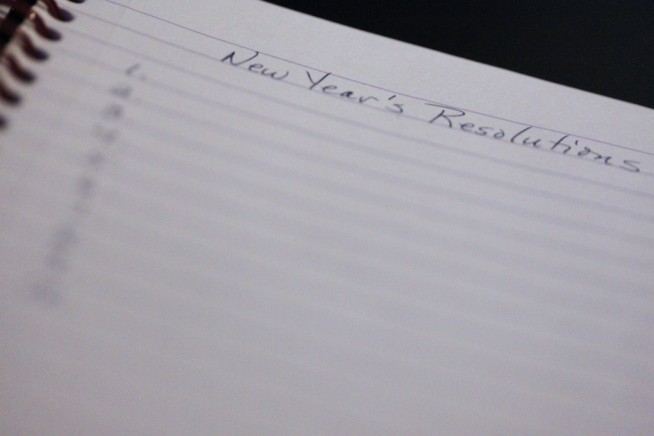It took me a long time to realize that what I thought of as “resolutions” could almost always be characterized as “habits.” Most often, when people want to make some kind of change in the New Year, they want to master some kind of habit. (If you want to know the Essential Seven of habits, read here.)
Since I started working on my habits for my book on habit change, Better Than Before, and since my resolutions-based happiness project, I’ve hit on many strategies to help myself stick to resolutions.
Here are just a few:
1. Be specific. Don’t resolve to “Make more friends” or “Strengthen friendships”; that’s too vague. To make more friends as part of my happiness project, I have several very concrete resolutions like: “Start a group,” “Remember birthdays,” “Say hello,” “Make plans,” “Show up,” and “No gossip.”
2. Write it down.
3. Review your resolution constantly. If your resolution is buzzing through your head, it’s easier to stick to it. I review my Resolutions Chart every night.
4. Hold yourself accountable. Tell other people about your resolution, join or form a like-minded group, score yourself on a chart (my method) — whatever works for you to make yourself feel accountable for success and failure.
5. Think big. Maybe you need a big change, a big adventure – a trip to a foreign place, a break-up, a move, a new job. Let yourself imagine anything, and plan from there.
6. Think small. Don’t fall into the trap of thinking that only radical change can make a difference. Just keeping your fridge cleared out could give you a real boost. Look close to home for ways to improve and grow.
7. Ask for help. Why is this so hard? But every time I ask for help, I’m amazed at how much easier my task becomes.
If you have an especially tough time keeping resolutions, if you have a pattern of making and breaking them, try these strategies:
8. Consider making only pleasant resolutions. We can make our lives happier in many ways. If you’ve been trying the boot-camp approach with no success, try resolving to “Go to more movies,” “Entertain more often,” or whatever resolutions you’d find fun to keep. Often, having more fun in our lives makes it easier to do tough things. Seeing more movies might make it easier to keep going to the gym. Remember, we must have treats!
9. Consider giving up a resolution. If you keep making and breaking a resolution, consider whether you should relinquish it entirely. Put your energy toward changes that are both realistic and helpful. Don’t let an unfulfilled resolution to lose twenty pounds or to overhaul your overgrown yard block you from making other, smaller resolutions that might give you a big happiness boost.
10. Consider keeping your resolution every day. Weirdly, it’s often easier to do something every day (exercise, post to a blog, deal with the mail, do laundry) than every few days.
11. Set a deadline.
12. Don’t give up if something interferes with your deadline.
13. “Don’t let the perfect be the enemy of the good.” Thank you, Voltaire.
If you break your resolution today, try again tomorrow. @gretchenrubin (Click to Tweet!)
Although some people assume that strong feelings of guilt or shame act as safeguards to help people stick to good habits, the opposite is true. People who feel less guilt and who show compassion toward themselves in the face of failure are better able to regain self-control, while people who feel deeply guilty and full of self-blame struggle more.
What else? What are some strategies you’ve discovered, to help you stick to your New Year’s resolutions?
Gretchen Rubin is the author of the #1 New York Times Bestseller The Happiness Project—an account of the year she spent test-driving the wisdom of the ages, current scientific studies, and lessons from popular culture about how to be happier—and the recently released Happier at Home. On her popular blog, The Happiness Project, she reports on her daily adventures in the pursuit of happiness. For more doses of happiness and other happenings, follow Gretchen on Facebook and Twitter.
Featured image courtesy of Shelly S.












